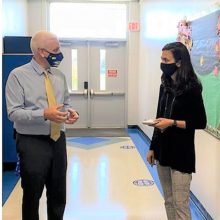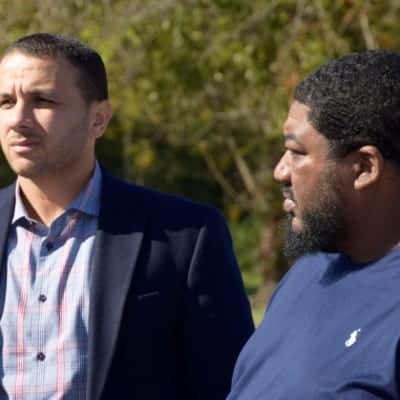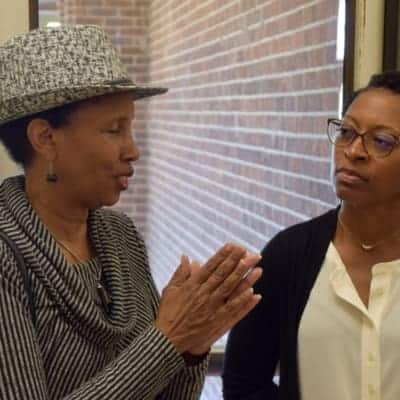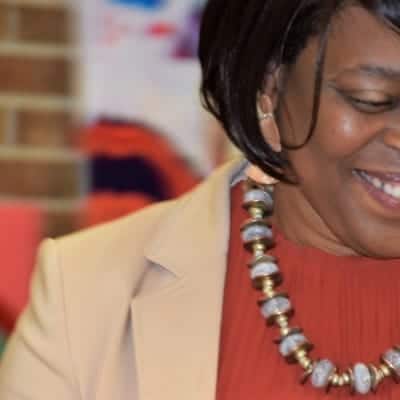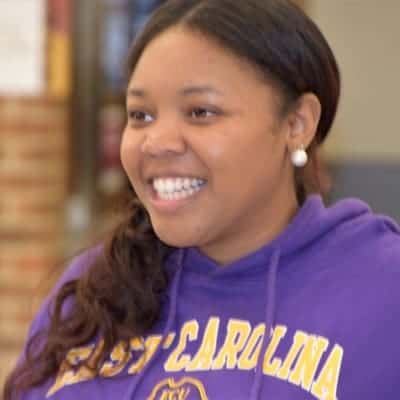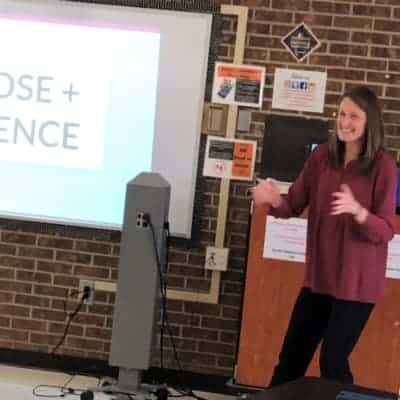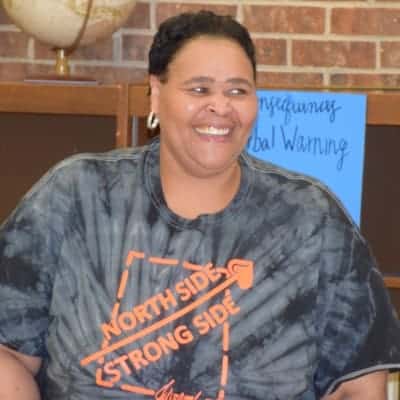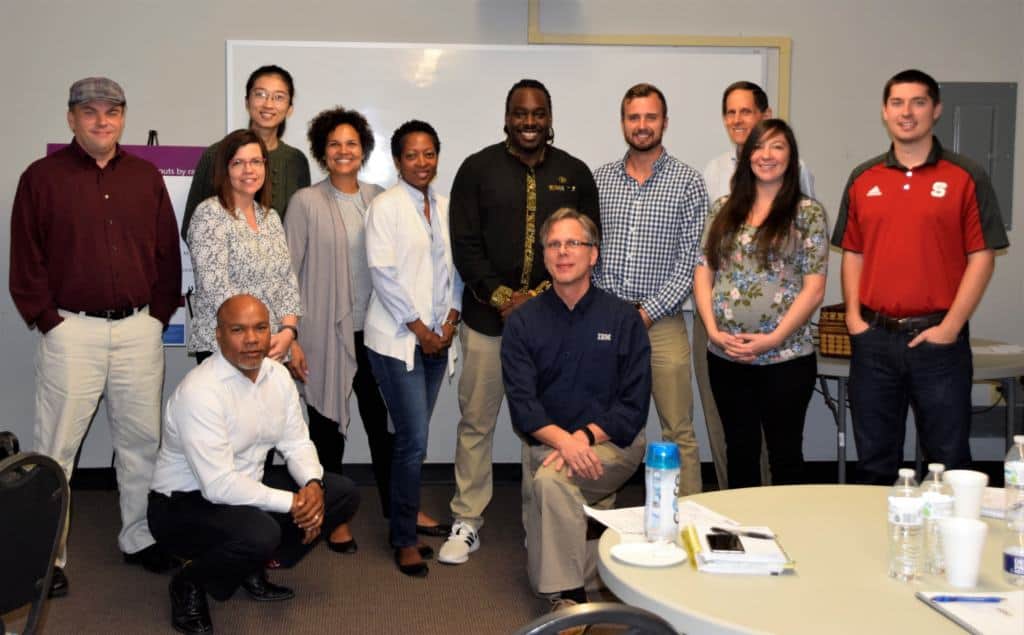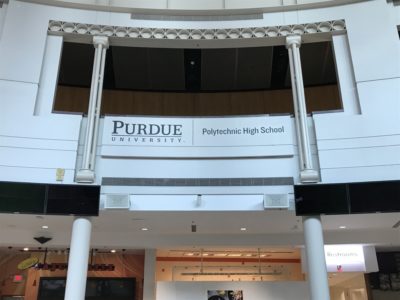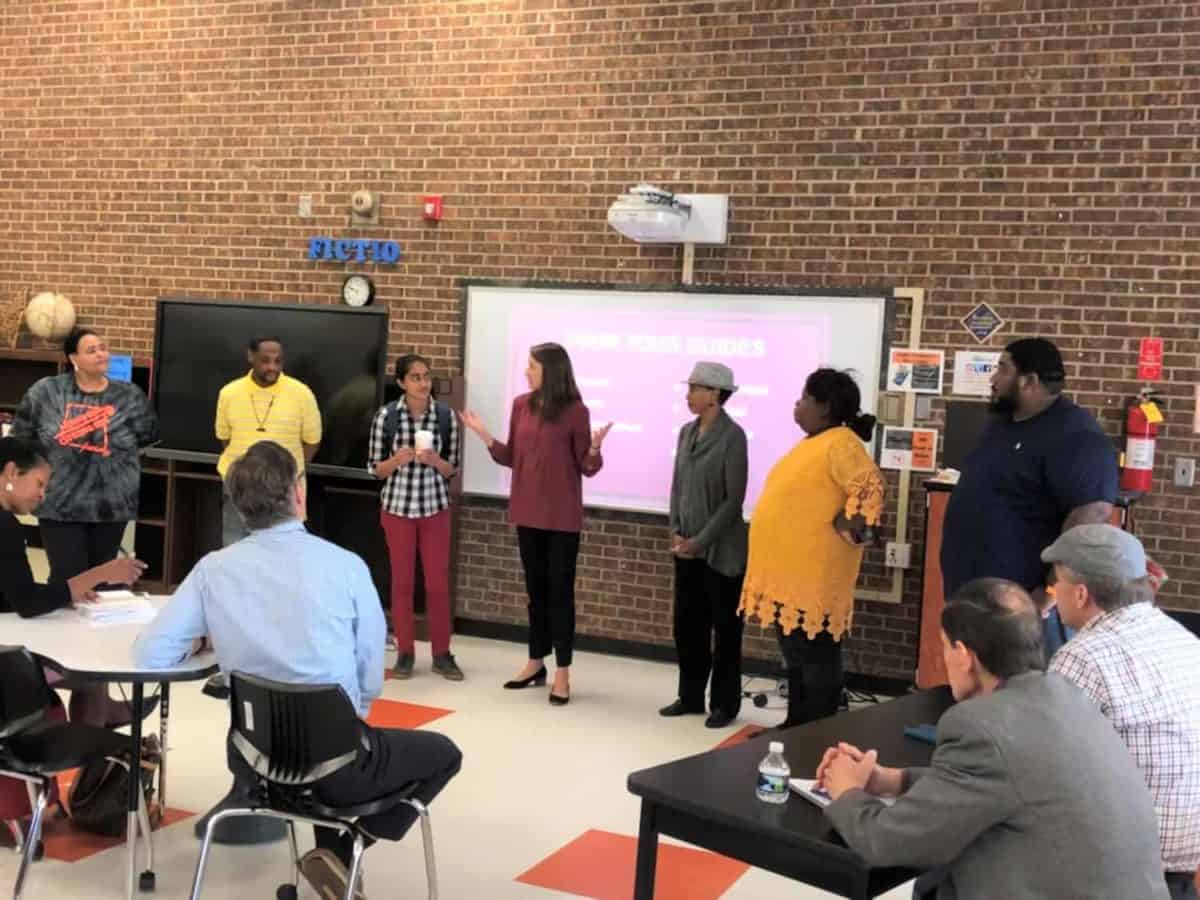

“Lots of people talk about poverty, but what it means is lack of opportunity for our students,” said Valerie Bridges, superintendent of Edgecombe County Public Schools. Bridges was addressing a group of IBM employees — 12 in total — who will spend the next month embedded in Edgecombe County as part of IBM’s Service Corps. The project is a partnership between EdNC.org, Edgecombe County Public Schools (ECPS), and IBM Service Corps that will leverage data to measure the impact of a unique school in the county — the North Phillips School of Innovation.
Last year, the North Phillips School of Innovation launched as a “micro school,” a pilot program that was located on the campus of North Edgecombe High but started by serving just 30 students. Those 30 students included a mix of eighth graders from Phillips Middle School and ninth graders from North Edgecombe High School. The school was led by a cohort of Teach For America alumni, including Erin Swanson, director of innovation for the district; Donnell Cannon, principal of North Edgecombe High School; and Jenny O’Meara, principal of Phillips Middle School; and Hillary Braden and Sayre Man, classroom teachers.
This year, every eighth, ninth, and 10th grader in the Northside feeder pattern — hear the team screaming “Northside, Strongside!” — has practices from the School of Innovation incorporated into their school days. The eighth graders attend Phillips Middle School and the ninth and 10th graders attend North Edgecombe High School. In all of the School of Innovation classrooms, students experience social-emotional support from the moment they show up. In the morning, students reflect on their goals and affirm the successes of others in the space. They work on interdisciplinary passion projects every day in Design Labs and Standards Labs. And they become the architect of their own identities, taking charge of their agency in the world.
To learn more about the genesis of the school, read our profile here.
Edgecombe County, North Carolina
– Population: 52,005
– 57.8% black, 39.8% white, 4.8% Hispanic
– 6,200+ students in Edgecombe County Public Schools
– 11.6% of adults have a bachelor’s degree or higher
– 505 square miles, or about the size of Phoenix
– Edgecombe County Public Schools is the largest employer the in the county
But current models of school data and accountability aren’t equipped to measure many of the things that the school wants to foster in its students — things like building a strong student voice, engaging productively in the community, and working well with others.
That’s where the IBM team comes in. During this four-week project, the IBM Service Corps team will identify data sources and integrate insights to build a dashboard or tool that will allow school leaders to better understand student outcomes and the impact of the model. The team also plans to develop policy and other recommendations to strengthen the model and support scaling among other districts.
“We need your help defining our impact and really being able to say: Here’s the difference this is making. Let’s make this not just qualitative, but quantitative too. Numbers talk,” said Swanson.
Meet the IBM team
Steve Pearson, Corporate Citizenship leader at IBM , saw EdNC’s short documentary about the School of Innovation and reached out to EdNC about the possibility of an IBM Service Corps team working with the district.
Support team
- Steve Pearson, Project Lead
- Angela Pickett, Project Lead
- Audrey Mathias, Local Facilitator
- Kristin Lindenberg, Project Support
Project team
- Josh Abt
- Lindzee Bailey
- Craig Barta
- Kevin Hicks
- Gerry Piltzer
- Tiffany Scotton
- Paul Thompson
- Dan Yang
- Amanda Liimatainen
- David Green
Rooted in community
The project launched on Monday with a two-hour bus tour of Edgecombe County, lead by community leaders Gwyn Howell, Tarrell Perry, Vichi Jagannathan, Susan Hoke, Felicia Cofield, Byron Hall, and Doris Stith (learn more about Stith in this EdNC video).
The IBM team heard about barriers that students face — like a lack of transportation or limited broadband access that makes participating in activities or completing homework more difficult.
From ghost stories to fields of cotton, from density to top employers, from access to broadband to access to healthy food, we are learning about @amplifyecps with @IBMorg @IBMVolunteers. pic.twitter.com/5JOuryYdEJ
— Mebane Rash (@Mebane_Rash) October 28, 2019
The bus visited Princeville, where community members discussed recent flooding from hurricanes and the upcoming reopening of an elementary school that’s been closed since 2016. Community members discussed Freedom Hill, which marks that Princeville was the first all-black town and independently governed African American community incorporated in the United States.
Making sure our work is grounded in place. Many families in Princeville are still displaced after Hurricane Matthew. @IBMorg @IBMVolunteers pic.twitter.com/36q6kFfTvu
— Mebane Rash (@Mebane_Rash) October 28, 2019
After lunch, the team heard directly from students, teachers, and school leaders who were part of the micro school last year. Students explained the impact of the model on their learning.
We are digging deeper with teachers @amplifyecps. “The process that brought us here is empathy,” says Hillary Braden. With @IBMorg @IBMVolunteers. pic.twitter.com/vs8Hr1Z8lf
— Mebane Rash (@Mebane_Rash) October 29, 2019
On Monday evening, community members and the project team gathered at Tarboro Brewing Company to kick off the project.
On Tuesday more, James Ford, the executive director of CREED (the Center for Racial Equity in Education), walked the IBM team through racial equity training. “Freedom Hill is not a hill. It is the idea. The idea of self-determination,” said Ford.
Stay tuned to EdNC.org for updates on the work of the IBM Service Corps team over the course of the next month as they dive deep into the data, the dashboard, the roadmap, and the stories of this project.
“Is the work hard? Absolutely. Is it a heavy lift? Absolutely. Are we willing to do it? Every single day.” Dr. Valerie Bridges, superintendent @amplifyecps, to the @IBMorg @IBMVolunteers team. pic.twitter.com/FxoME8lhbg
— Mebane Rash (@Mebane_Rash) October 29, 2019
